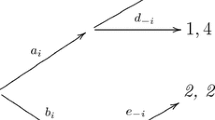Abstract
Why have we humans been so successful as a species? We are not strong like tigers, big like elephants, protectively colored like lizards, or swift like gazelles. We are intelligent, but an intelligent human alone in the forest would not survive for long. What has really made us such successful animals is our ability to apply our intelligence to cooperating with others to accomplish group goals. From the primitive hunting group to the corporate boardroom, it is those of us who can solve problems while working with others who succeed. In fact, in modern society, cooperation in face-to-face groups is increasingly important. A successful scientist must be able to cooperate effectively with other scientists, with technicians, and with students. An executive must cooperate with other executives, salespersons, suppliers, and superiors. Of course, each of those relationships also has competitive elements, but in all of them, if the participants cannot cooperate to achieve a common goal, all lose out. It is difficult to think of very many adult activities in which the ability to cooperate with others is not important. Human society is composed of overlapping cooperative groups: families, neighborhoods, work groups, political parties, clubs, teams.
Access this chapter
Tax calculation will be finalised at checkout
Purchases are for personal use only
Preview
Unable to display preview. Download preview PDF.
Similar content being viewed by others
References
Allport, G. The nature of prejudice. Cambridge, Mass.: Addison-Wesley, 1954.
Ames, C., Ames, R., & Felker, D. Effects of competitive reward structures and valence of outcome on children’s achievement attributions. Journal of Educational Psychology, 1977, 69, 1–8.
Armstrong, B., Johnson, D. W., & Balow, B. Effects of cooperative vs. individualistic learning experiences on interpersonal attraction between learning-disabled and normal-progress elementary school students. Contemporary Educational Psychology, 1981, 6, 102–109.
Aronson, E. The Jigsaw classroom. Beverly Hills, Calif.: Sage, 1978.
Ballard, M., Corman, L., Gottlieb, J., & Kaufman, M. Improving the social status of mainstreamed retarded children. Journal of Educational Psychology, 1977, 69, 605–611.
Cooper, L., Johnson, D. W., Johnson, R., & Wilderson, F. Effects of cooperative, competitive, and individualistic experiences on interpersonal attraction among heterogeneous peers. Journal of Social Psychology, 1980, 111, 243–252.
Gerard, H. B., & Miller, N. School desegregation: A long-term study. New York: Plenum Press, 1975.
Gottlieb, J., & Leyser, Y. Friendship between mentally retarded and nonretarded children. In S. Asher & J. Gottman (Eds.), The development of children’s friendships. Cambridge: Cambridge University Press, 1981.
Hertz-Lazarowitz, R., Sharan, S., & Steinberg, R. Classroom learning styles and cooperative behavior of elementary school children. Journal of Educational Psychology, 1980, 72, 99–106.
Janke, R. The Teams-Games-Tournament (TGT) method and the behavioral adjustment and academic achievement of emotionally impaired adolescents. Paper presented at the Annual Convention of the American Educational Research Association, Toronto, 1977.
Johnson, D. W., & Johnson, R. T. Instructional goal structure: Cooperative, competitive, or individualistic. Review of Educational Research, 1974, 44, 213–240.
Johnson, D. W., & Johnson, R. T. Learning together and alone. Englewood Cliffs, N. J.: Prentice-Hall, 1975.
Kukla, A. Foundations of an attributional theory of performance. Psychological Review, 1972, 79, 454–470.
Lucker, G. W., Rosenfield, D., Sikes, J., & Aronson, E. Performance in the interdependent classroom: A field study. American Educational Research Journal, 1976, 13, 115–123.
Madden, N. A., & Slavin, R. E. Cooperative learning and social acceptance of main-streamed academically handicapped students. Journal of Special Education, 1983, 17, 171–182.
Sharan, S. Cooperative learning in small groups: Recent methods and effects on achievement, attitudes, and ethnic relations. Review of Educational Research, 1980, 50, 241–271.
Sharan, S., & Sharan, Y. Small-group teaching. Englewood Cliffs, N. J.: Educational Technology Publications, 1976.
Sharan, S., Hertz-Lazarowitz, R., & Ackerman, Z. Academic achievement of elementary school children in small-group versus whole class instruction. Journal of Experimental Education, 1980, 48, 125–129.
Slavin, R. E. Classroom reward structure: An analytic and practical review. Review of Educational Research, 1977, 47 (4), 633–650. (a)
Slavin, R. E. A student team approach to teaching adolescents with special emotional and behavioral needs. Psychology in the Schools, 1977, 14 (1), 77–84. (b)
Slavin, R. E. Effects of biracial learning teams on cross-racial friendships. Journal of Educational Psychology, 1979, 71, 381–387.
Slavin, R. E. Using student team learning (rev. ed.). Baltimore, Md.: Center for Social Organization of Schools, Johns Hopkins University, 1980.
Slavin, R. E. Cooperative learning. New York: Longman, 1983. (a)
Slavin, R. E. When does cooperative learning increase student achievement? Psychological Bulletin, 1983, 94, 429–445. (b)
Slavin, R. E., & Hansell, S. Cooperative learning and intergroup relations: Contact theory in the classroom. In J. Epstein & N. Karweit (Eds.), Friends in school. New York: Academic Press, 1983.
Slavin, R. E., & Oickle, E. Effects of cooperative learning teams on student achievement and race relations: Treatment by race interactions. Sociology of Education, 1981, 54, 174–180.
Wheeler, R. Predisposition toward cooperation and competition: Cooperative and competitive classroom effects. Paper presented at the Annual Convention of the American Psychological Association, San Francisco, 1977.
Ziegler, S. The effectiveness of cooperative learning teams for increasing cross-ethnic friendship: Additional evidence. Human Organization, 1981, 40, 264–268.
Author information
Authors and Affiliations
Editor information
Editors and Affiliations
Rights and permissions
Copyright information
© 1985 Springer Science+Business Media New York
About this chapter
Cite this chapter
Slavin, R.E. (1985). An Introduction to Cooperative Learning Research. In: Slavin, R., Sharan, S., Kagan, S., Hertz-Lazarowitz, R., Webb, C., Schmuck, R. (eds) Learning to Cooperate, Cooperating to Learn. Springer, Boston, MA. https://doi.org/10.1007/978-1-4899-3650-9_1
Download citation
DOI: https://doi.org/10.1007/978-1-4899-3650-9_1
Publisher Name: Springer, Boston, MA
Print ISBN: 978-1-4899-3652-3
Online ISBN: 978-1-4899-3650-9
eBook Packages: Springer Book Archive




